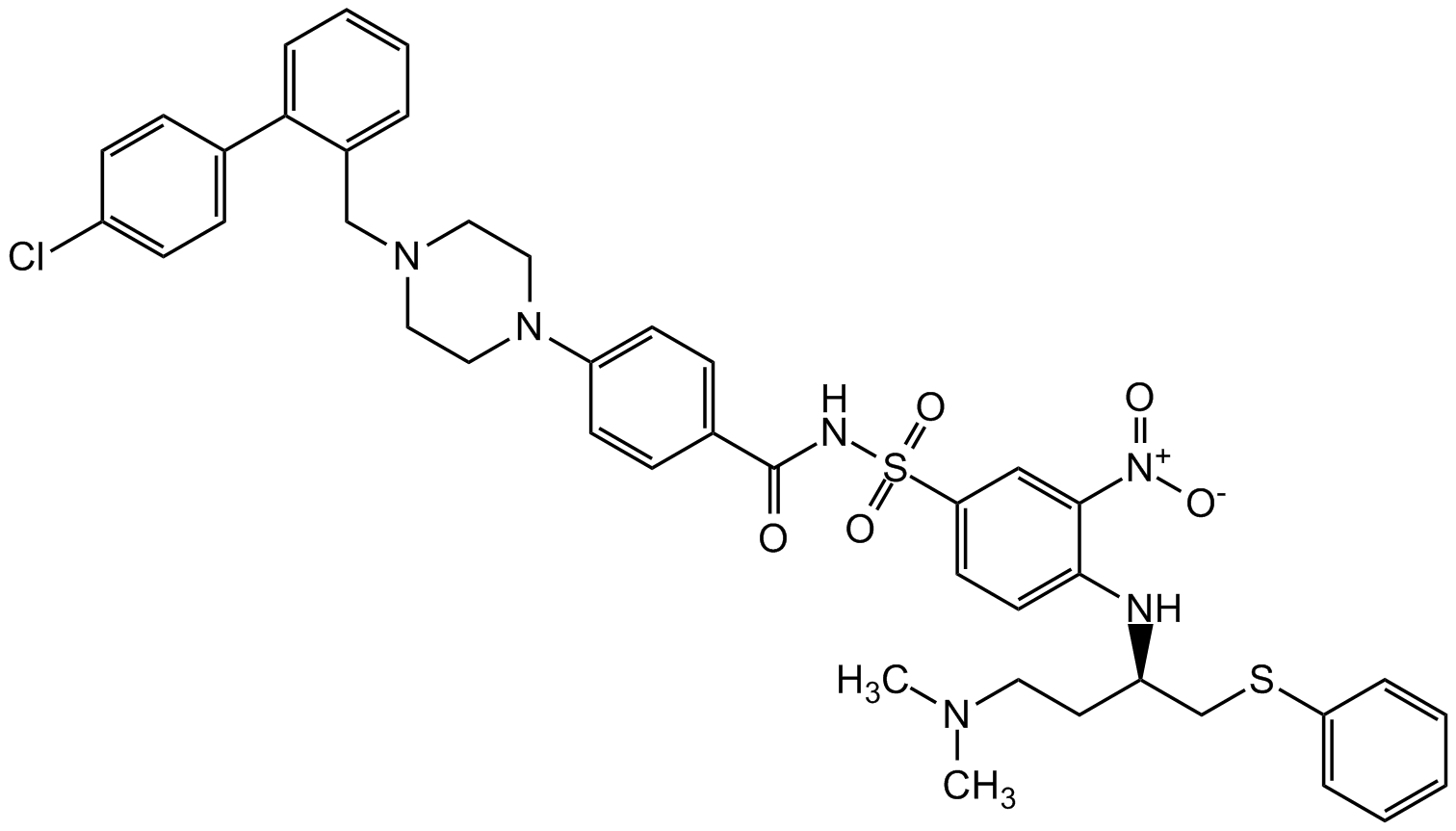
Chemical Structure
ABT-737 [852808-04-9] [852808-04-9]
SYN-1001
CAS Number852808-04-9
Product group Chemicals
Estimated Purity>95%
Molecular Weight813.4
Overview
- SupplierSYNkinase
- Product NameABT-737 [852808-04-9] [852808-04-9]
- Delivery Days Customer2
- CAS Number852808-04-9
- CertificationResearch Use Only
- Estimated Purity>95%
- Hazard InformationWarning
- Molecular FormulaC42H45ClN6O5S2
- Molecular Weight813.4
- Scientific DescriptionABT-737 is a small-molecule inhibitor of the anti-apoptotic proteins Bcl-2, Bcl-X(L) and Bcl-w, with an affinity two to three orders of magnitude more potent than previously reported compounds. Mechanistic studies reveal that ABT-737 does not directly initiate the apoptotic process, but enhances the effects of death signals, displaying synergistic cytotoxicity with chemotherapeutics and radiation. ABT-737 exhibits single-agent-mechanism-based killing of cells from lymphoma and small-cell lung carcinoma lines, as well as primary patient-derived cells, and in animal models, ABT-737 improves survival, causes regression of established tumors, and produces cures in a high percentage of the mice. ABT-737 binds to Bcl-2, Bcl-xL and Bcl-w with very high affinities (Ki <1 nM) and also shows a very high specificity over Mcl-1 and A1. - Chemical. CAS: 852808-04-9. Formula: C42H45ClN6O5S2. MW: 813.4. ABT-737 is a small-molecule inhibitor of the anti-apoptotic proteins Bcl-2, Bcl-X(L) and Bcl-w, with an affinity two to three orders of magnitude more potent than previously reported compounds. Mechanistic studies reveal that ABT-737 does not directly initiate the apoptotic process, but enhances the effects of death signals, displaying synergistic cytotoxicity with chemotherapeutics and radiation. ABT-737 exhibits single-agent-mechanism-based killing of cells from lymphoma and small-cell lung carcinoma lines, as well as primary patient-derived cells, and in animal models, ABT-737 improves survival, causes regression of established tumors, and produces cures in a high percentage of the mice. ABT-737 binds to Bcl-2, Bcl-xL and Bcl-w with very high affinities (Ki <1 nM) and also shows a very high specificity over Mcl-1 and A1.
- Storage Instruction2°C to 8°C
- UNSPSC12161509


![ABT-737 [852808-04-9] [852808-04-9]](https://www.targetmol.com/group3/M00/35/62/CgoaEGayHaKEPI1HAAAAAK6XyzI237.png)